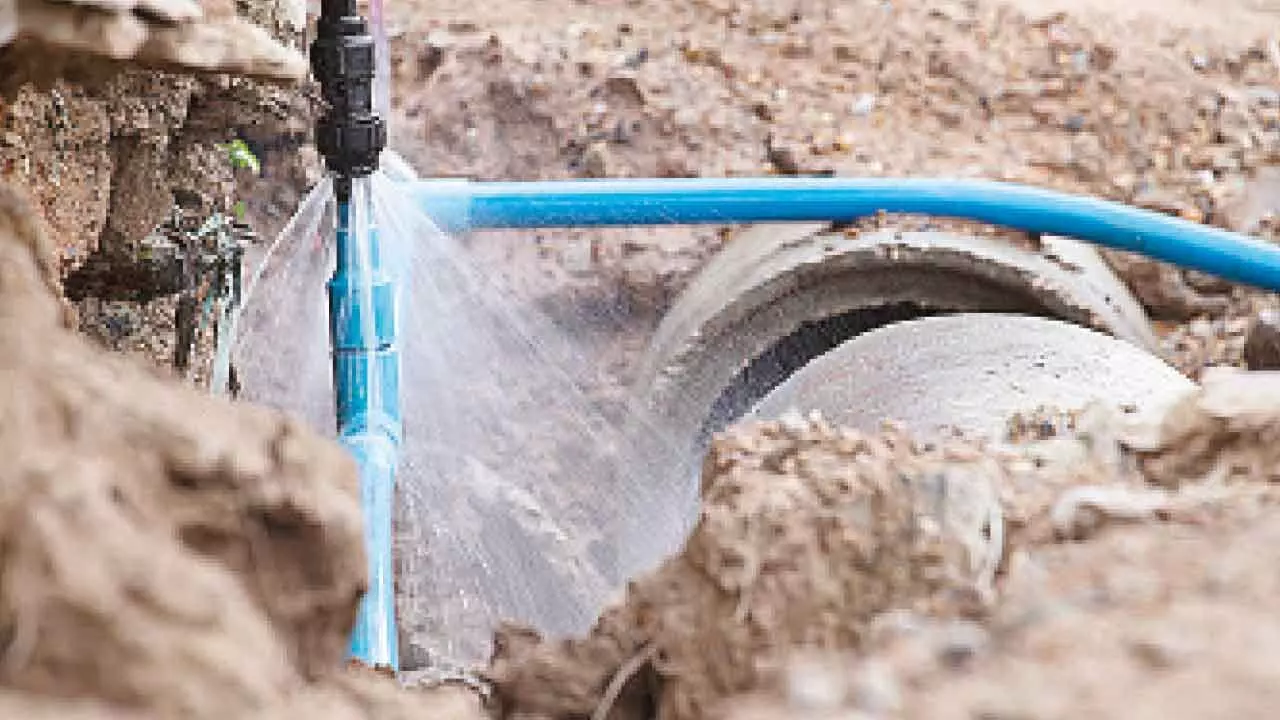Mumbai, a city constantly striving for progress and sustainable infrastructure, faces a temporary setback in its essential water supply network.
A significant 1200 mm diameter water pipeline suffered damage at the vital Amar Mahal Junction due to ongoing metro construction activities. This unforeseen incident has compelled the Brihanmumbai Municipal Corporation (BMC) to undertake urgent repair operations, necessitating the shutdown of the adjoining, even larger 1800 mm main water pipeline. This consequential action will result in complete or partial water supply disruption for approximately 24 hours across several wards in the city’s eastern suburbs and pockets of South Mumbai, impacting the daily lives of countless residents. The ripple effect of this infrastructural damage extends across a significant geographical area. Residents in M West Ward, encompassing Chembur, Swastik Park, and Ghatla, among other localities, will experience a complete cessation of water supply. Similarly, the entirety of M East Ward, including Govandi, Deonar, and Mankhurd, will face a dry spell. The impact will also be severely felt in N Ward, affecting Ghatkopar East and its adjoining areas in Ghatkopar West, as well as L Ward, covering Tilak Nagar and Kurla East. Even F North Ward, which includes Matunga East and Dadar East, will not be spared from the complete shutdown.
Beyond the complete cessation, a considerable portion of the city will experience partial disruptions. In F South Ward, areas including parts of Parel, Sewri, and Naigaon, along with critical hospital zones housing KEM, Tata, and Wadia hospitals, will face reduced water pressure and intermittent supply. Densely populated areas like Mint Colony, Lalbaug, Hindmata, and Abhyudaya Nagar will also bear the brunt of these partial disruptions. Recognizing the potential hardship this will cause, the BMC has issued an urgent appeal to the residents in the affected zones to proactively store an adequate quantity of water and exercise utmost judiciousness in its usage during this period of emergency repairs. The civic body has also moved swiftly to initiate the necessary restoration work, emphasizing a commitment to a rapid turnaround. Authorities have assured citizens that the repair operations are being conducted on a war footing, with a phased resumption of normal water supply anticipated following the completion of the critical repairs.
This incident underscores the intricate challenges of urban development in a densely populated metropolis like Mumbai. While the expansion of the metro network is crucial for enhancing connectivity and promoting sustainable transportation – aligning with the city’s long-term vision for a zero net carbon and eco-friendly future – it inevitably presents complexities in managing existing infrastructure. The damage to the water pipeline serves as a stark reminder of the need for meticulous coordination and robust safety protocols during such large-scale construction projects to minimize disruption to essential civic amenities. The BMC’s prompt response and commitment to swift restoration are crucial in mitigating the impact on the daily lives of Mumbaikars. The effectiveness of the repair work and the subsequent phased resumption of water supply will be closely monitored by residents and civic observers alike. This event also highlights the importance of investing in resilient and adaptable infrastructure to ensure the seamless functioning of essential services in the face of urban development and unforeseen challenges, ultimately contributing to a more equitable and sustainable urban environment for all.
Also read: https://urbanacres.in/bmc-installs-smart-pumps-and-upgrades-drains-to-prevent-flooding-this-monsoon/
City Water Supply Hit by Pipeline Damage


